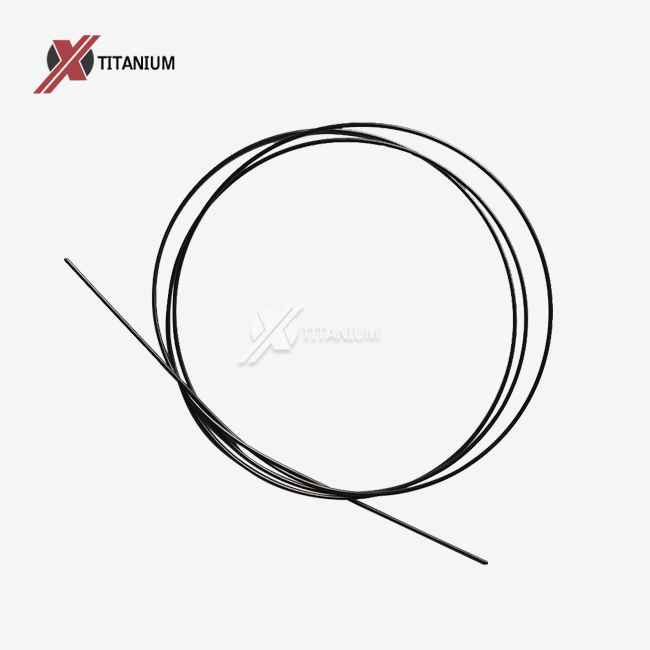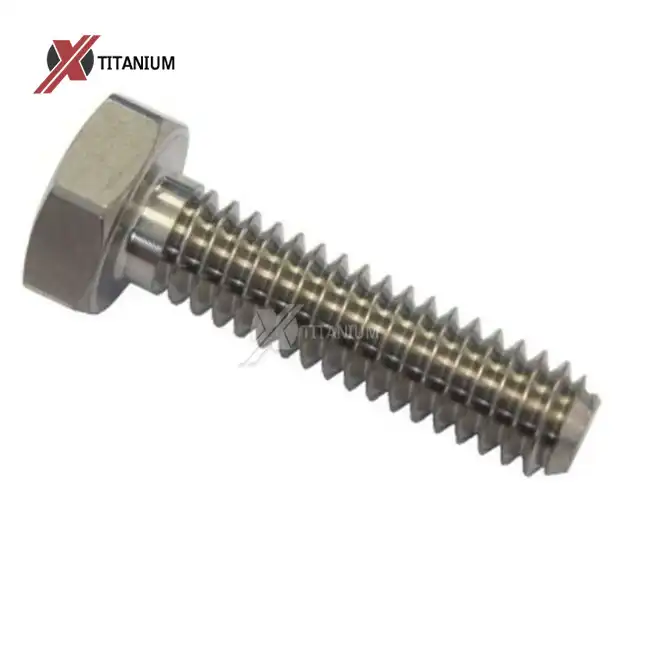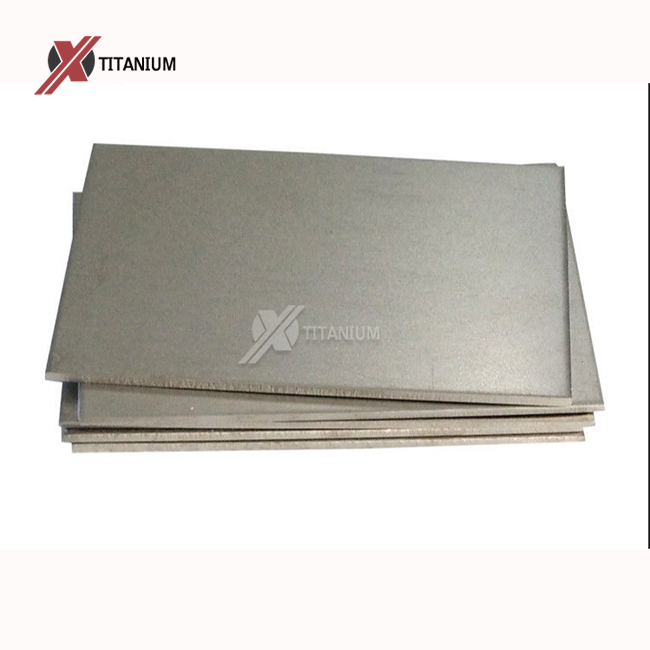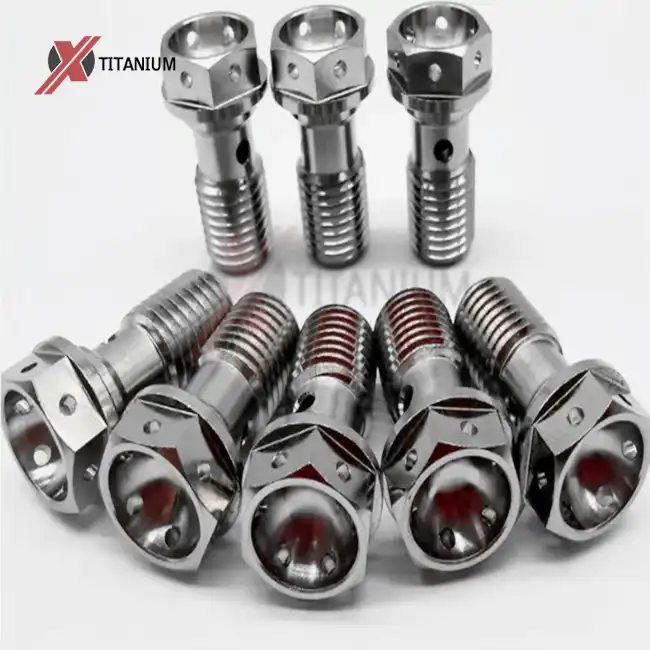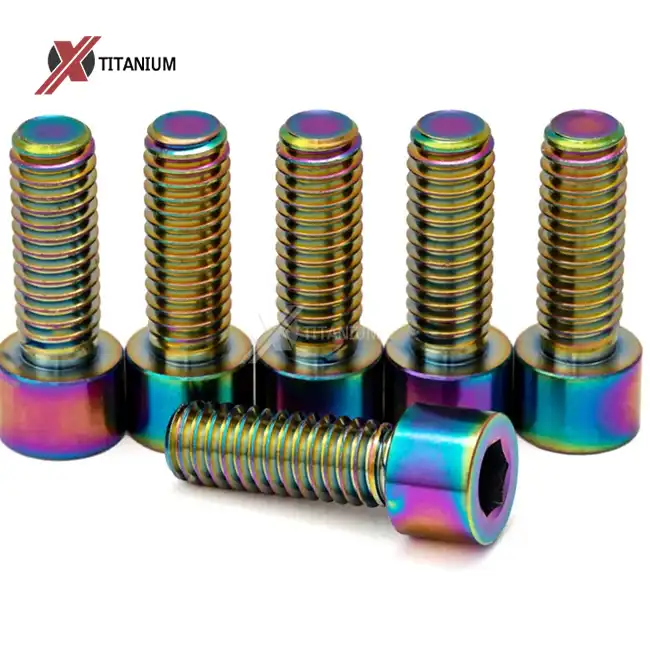The Marvels of Nickel Titanium Memory Wire
Nickel titanium memory wire is an extraordinary alloy that exhibits exceptional characteristics. Its most notable feature is the shape memory effect, which allows the wire to "remember" and return to its original shape when heated. This property, combined with its superelasticity, makes it an ideal material for various industries, from medical devices to aerospace engineering.
Shape Memory Effect: A Game-Changing Property
The shape memory effect of nickel titanium memory wire is truly remarkable. This unique property allows the wire to be deformed at low temperatures and then return to its pre-set shape when heated. This characteristic opens up a world of possibilities in applications where controlled, reversible shape changes are crucial.
Superelasticity: Flexibility Beyond Compare
Another standout feature of nickel titanium memory wire is its superelasticity. This property allows the wire to undergo significant deformation without permanent damage, returning to its original form once the stress is removed. This exceptional flexibility makes it superior to stainless steel in applications requiring repeated bending or flexing.
Nickel Titanium Memory Wire vs Stainless Steel: The Superiority
While stainless steel has long been a staple in various industries, nickel titanium memory wire is rapidly gaining ground due to its superior properties. Let's compare these two materials to understand why memory wire often comes out on top.
Corrosion Resistance: A Clear Winner
Both nickel titanium memory wire and stainless steel offer good corrosion resistance, but nickel titanium takes the lead. It shows exceptional resistance to corrosion in harsh environments, including saline solutions, making it particularly valuable in marine and medical applications. This superior corrosion resistance translates to longer product life and reduced maintenance costs.
Flexibility and Fatigue Resistance
When it comes to flexibility, nickel titanium memory wire leaves stainless steel in the dust. Its superelastic properties allow it to undergo much greater deformation without permanent damage. This flexibility, coupled with excellent fatigue resistance, makes it ideal for applications involving repeated stress cycles, such as in medical stents or actuators in robotics.
Biocompatibility: A Critical Advantage
In medical applications, biocompatibility is crucial. While certain grades of stainless steel are biocompatible, nickel titanium memory wire excels in this area. Its non-reactivity and compatibility with human tissues make it the material of choice for many medical implants and devices, offering a significant advantage over stainless steel.
Applications: Where Nickel Titanium Memory Wire Shines?
The unique properties of nickel titanium memory wire make it invaluable across a wide range of industries. Its versatility and performance often surpass that of stainless steel in many applications.
Medical Devices: Revolutionizing Patient Care
In the medical field, nickel titanium memory wire has become indispensable. Its shape memory effect and superelasticity are utilized in various devices, from orthodontic archwires to vascular stents. These properties allow for minimally invasive procedures and devices that can adapt to the body's movement, providing better patient outcomes than traditional stainless steel alternatives.
Aerospace: Pushing the Boundaries
The aerospace industry has embraced nickel titanium memory wire for its exceptional strength-to-weight ratio and thermal stability. It's used in aircraft hydraulic couplings, vibration dampers, and adaptive wings. In these applications, the memory wire's ability to change shape in response to temperature variations offers significant advantages over static stainless steel components.
Consumer Electronics: Enhancing Durability
In the world of consumer electronics, nickel titanium memory wire is making waves. Its durability and flexibility make it ideal for components like antenna wires, microconnectors, and SIM card trays. These applications benefit from the wire's ability to withstand repeated bending and flexing, outperforming traditional stainless steel options.
Conclusion
Nickel titanium memory wire has emerged as a superior alternative to stainless steel in numerous applications. Its unique properties - shape memory effect, superelasticity, corrosion resistance, and biocompatibility - offer significant advantages over traditional materials. From revolutionizing medical devices to enhancing aerospace components and improving consumer electronics, nickel titanium memory wire is paving the way for innovative solutions across industries. As technology continues to advance, we can expect to see even more applications where this remarkable alloy outperforms conventional materials, solidifying its position as a game-changer in material science.
Are you looking for high-quality nickel titanium memory wire for your next project? Look no further than Baoji Chuanglian New Metal Material Co., Ltd. As a leading manufacturer and exporter of titanium products, we offer superior nickel titanium memory wire that meets the highest industry standards. Our expert team is ready to assist you in finding the perfect solution for your needs.
Frequently Asked Questions
What is the composition of nickel titanium memory wire?
Nickel titanium memory wire typically consists of approximately 55% nickel and 45% titanium.
How does the shape memory effect work?
The shape memory effect occurs due to a phase transformation in the crystal structure of the alloy when it's heated or cooled.
Is nickel titanium memory wire more expensive than stainless steel?
While initially more expensive, the superior properties and longer lifespan of nickel titanium memory wire often make it more cost-effective in the long run.
Can nickel titanium memory wire be recycled?
Yes, nickel titanium memory wire can be recycled, although the process is more complex than recycling stainless steel.
Is China nickel titanium memory wire of good quality?
Yes, China produces high-quality nickel titanium memory wire, with manufacturers like Baoji Chuanglian New Metal Material Co., Ltd. adhering to strict quality control standards.
Experience the Superior Quality of Our Nickel Titanium Memory Wire
At Baoji Chuanglian New Metal Material Co., Ltd., we pride ourselves on producing top-tier nickel titanium memory wire. Our state-of-the-art manufacturing processes, including cold rolling, hot rolling, annealing, and pickling, ensure the highest quality product. We offer various surface finishes including bright, polished, pickled, acid cleaned, and sandblasted. Our rigorous quality testing, including hardness tests, bending tests, and hydrostatic tests, guarantees that our wire meets the most demanding specifications.
With features like high corrosion resistance, low density, and excellent thermal stability, our nickel titanium memory wire is perfect for applications in chemical industries, sports equipment, and beyond. Experience the difference with our premium China nickel titanium memory wire. Contact us at info@cltifastener.com or djy6580@aliyun.com to discuss your specific needs and how we can help your project succeed.
References
1. Johnson, A. D., & Vollmer, H. (2005). Shape Memory Alloys: Applications in Space and Medicine. Materials Science Forum, 485-487, 47-56.
2. Duerig, T., Pelton, A., & Stöckel, D. (1999). An overview of nitinol medical applications. Materials Science and Engineering: A, 273-275, 149-160.
3. Mohd Jani, J., Leary, M., Subic, A., & Gibson, M. A. (2014). A review of shape memory alloy research, applications and opportunities. Materials & Design, 56, 1078-1113.
4. Petrini, L., & Migliavacca, F. (2011). Biomedical Applications of Shape Memory Alloys. Journal of Metallurgy, 2011, 501483.
5. Sun, L., Huang, W. M., Ding, Z., Zhao, Y., Wang, C. C., Purnawali, H., & Tang, C. (2012). Stimulus-responsive shape memory materials: A review. Materials & Design, 33, 577-640.
